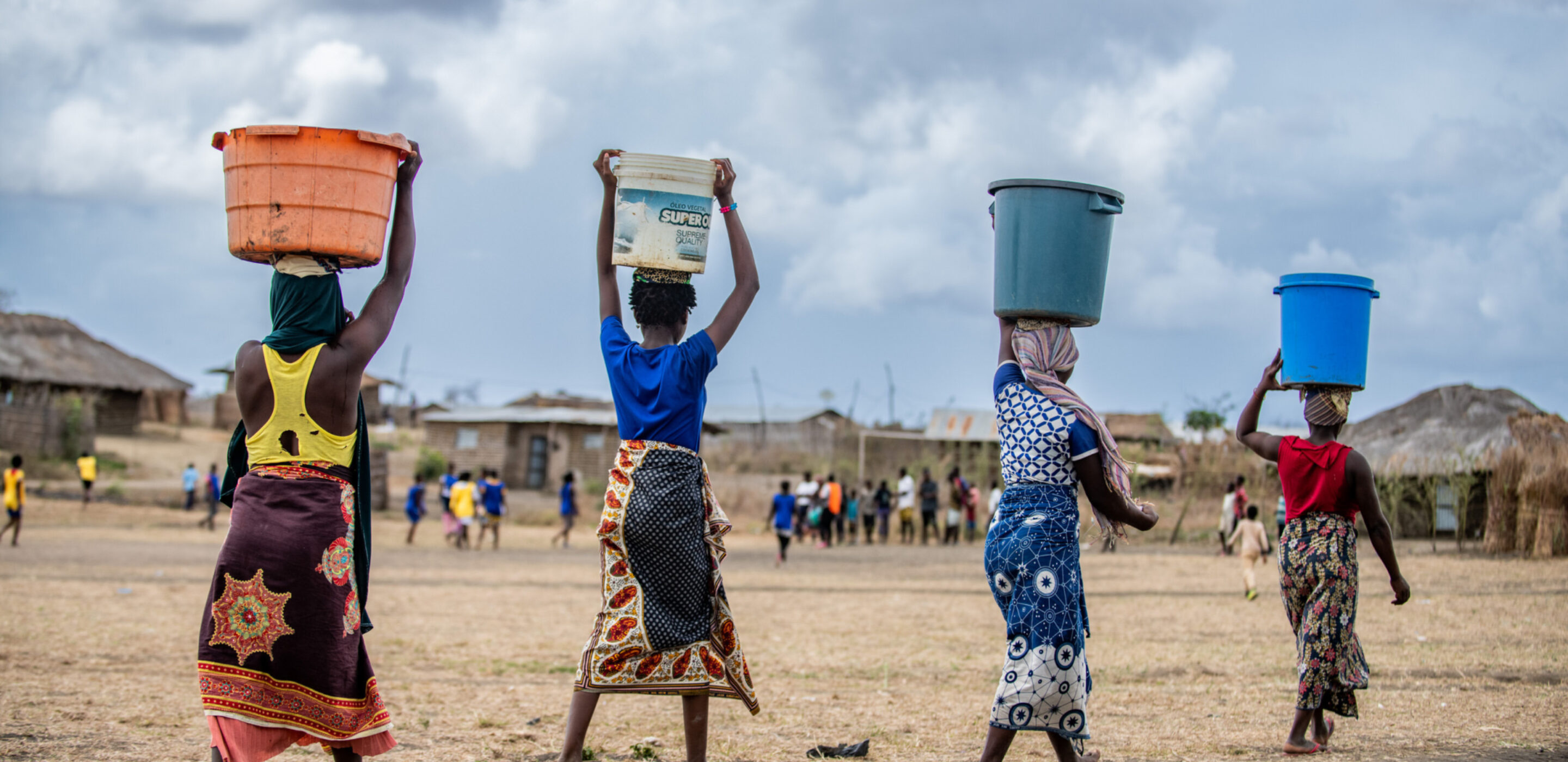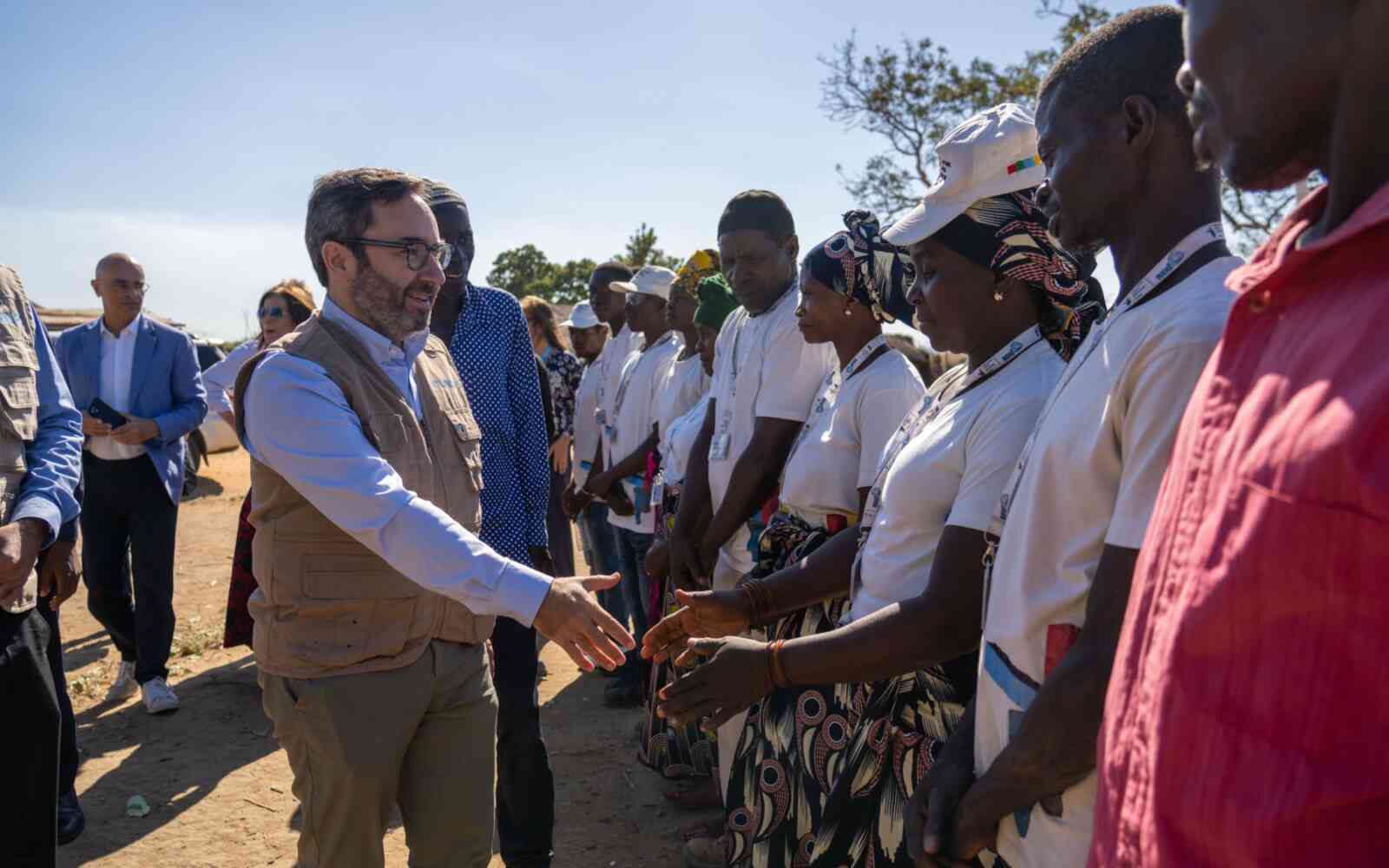The United Nations Office for Project Services (UNOPS)

Resilient crisis recovery in Mozambique
Since 2017, a wave of violence has interrupted education, destroyed crops and public infrastructure, impacted livelihoods and forced people to flee their homes in northern Mozambique.
The north of the country has been plagued by an armed insurgency. Regional economic imbalance and historical marginalization as well as a lack of access to land, resources and economic opportunities – particularly among the youth – have contributed to the conflict. Poverty and widespread youth unemployment have added fuel to the fire.
An estimated 1.3 million people in conflict-affected areas are in urgent need of humanitarian assistance while 540,000 people remain displaced. Attacks by armed insurgents have caused damage to infrastructure and disrupted the provision of basic services.
The Northern Crisis Recovery Project is responding to these urgent humanitarian and development needs.
With funding from the World Bank’s International Development Association, the government-led project, supported by UNOPS, is being implemented by the Ministry of Economy and Finance.
As part of the project, UNOPS is working with several local implementing partners to encourage social cohesion in communities impacted by the conflict, support sustainable livelihoods and economic opportunities, and increase access to public services for internally displaced people and host communities.
In support of the government's crisis response plan, the project is improving access to basic services and economic opportunities for internally displaced persons and host communities in targeted areas of northern Mozambique.
Increasing access to services and strengthening public infrastructure
For people who fled insurgency attacks in Cabo Delgado, they faced another barrier when they reached safety: an inability to prove their identity.
In most places, identification documents are vital for accessing public services, receiving assistance and getting a job. Without them, accessing these things often becomes nearly impossible.


In order to provide social services for vulnerable households and individuals, internally displaced persons are registered and provided with documentation as part of the project.
Catarina José Paulo lives in a relocation centre in Metuge with her family. Displaced from Muidumbe by the conflict, they lost all of their identification documents, which hindered their access to many public services.
"Community leaders carried out a house-to-house campaign to find people who did not have identification documents and informed them about the civil registration. We were able to process the children’s registration and, later, the identity cards for my husband, grandmother and I,” explains Catarina.
Working with the Provincial Civil Identification Service, over 100,000 people across Cabo Delgado were registered – and are now able to access public services and resume rebuilding their lives.
Public infrastructure such as schools and health centres are also being constructed, rehabilitated and equipped.


Supporting social cohesion and building peace
Maiassa Nazaro lives in Saúl, Metuge District. Born in Quissanga, the conflict in Cabo Delgado destroyed her dreams for the future.
"We heard rumors of attacks in nearby locations. For the first five days, we didn't pay much attention – until they invaded where we lived, burning all the houses. My family and I fled to the bush where we stayed for a few days,” says Maiassa.
The conflict forced Maiassa and her family to relocate to Saúl, where they stayed in an internally displaced person camp. The first few days were challenging.
"We had to adapt and live with people we didn't know," explains Maiassa. "The host community welcomed us and helped my family and others who were in the same situation to get back on their feet.”
With the guidance of a local implementing partner, 17 Peacebuilding Committees have been created in communities in Cabo Delgado to enhance resilience to conflict. The 20-member committees include people from the host community, internally displaced persons, women, youth and members of vulnerable groups.

The committees provide a forum for members of the community, community leaders, government representatives, and stakeholders from private and non-governmental organizations to discuss ways to promote peace and social cohesion through a range of activities. These can include sporting events, public lectures and community dialogues. The committees also help to identify and resolve community conflicts.
"I want my children to grow up in a community where everyone helps each other," says Albertina Julião, a member of the Naminawe Peacebuilding Committee. "The committee is a pillar of the community – it has used awareness raising and debates as a way to convey positive messages locally."
Creating economic opportunities and supporting livelihoods
Across Cabo Delgado, the project is supporting job creation and professional skill development initiatives, especially for local youth and internally displaced people.
In the village of Saúl in the Metuge District, participants have been provided with training and self-employment start-up kits.
Launa Joaquim is a member of the Honey Production and Processing Association. He participated in an organizational development plan competition organized by a local implementing partner and received a self-employment kit.
During the competition, participants had the opportunity to showcase their planning skills and innovative ideas. Competition facilitators provided training on how to improve the association's work.
The community in Saúl had a difficult time purchasing essential products so Launa's association suggested opening a small shop to sell those essential products. This would reduce the travel time for people in the community to purchase goods. And the association could then use the profits from the small store to expand.

I currently get an average daily income of 750 Mozambican metical (approximately $12) that has enabled me to feed my family and buy education materials for my school-going children.
In Chiúre, Montepuez and Namuno Districts, fish farmers and local associations received fisheries equipment and kits that will be used to open fish farming tanks, which will help to increase local fish production.
In partnership with the Alberto Cassimo Institute of Professional Training and Labor Studies, the National Institute of Employment and a local implementing partner, professional training courses in agriculture, tailoring, carpentry and culinary arts, among other skills, were provided to nearly 700 people in Balama, Montepuez and Namuno Districts. Graduates from the training courses also receive self-employment kits to help them on their way to building up their own businesses, improving their livelihood opportunities.


Anifa Alfane Carimo lives in Metuge District.“I always liked playing with dolls and making clothes using mango leaves and other plants. I found out through the ADPP [Mozambique, a local implementing partner] team that registration was underway for a cutting and sewing course. I remembered my childhood memories and went to sign up for the course to be able to learn sewing techniques,” says Anifa.
“Today, I know some sewing techniques and how to distinguish which type of cloth we use for the production of different pieces. This course will help me create my own tailor shop and teach other girls in my community,” adds Anifa.
Northern Crisis Recovery Project - in numbers
About the project
The 'Northern Crisis Recovery Project’ is a government of Mozambique project being implemented by UNOPS in coordination with local partners, using $200 million in financing from the World Bank’s International Development Association. The project focuses on building social cohesion and resilience to conflict, providing livelihood and economic opportunities for internally displaced persons and host communities, and rehabilitating, constructing and equipping climate-resilient public infrastructure.
The project is being implemented in 13 of Cabo Delgado's districts: Ancuabe, Balama, Chiure, Macomia, Mecufi, Meluco, Metuge, Mocimboa da Praia, Montepuez, Muidumbe, Namuno, Palma and Quissanga.




















